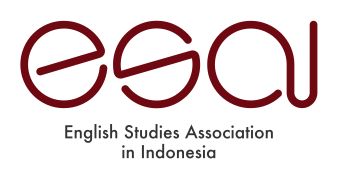Investigating the Roles of Implicit and Explicit Knowledge in the Production of Grammatical Errors
Abstract
Keywords
Full Text:
PDFReferences
Akakura, M. (2012). Evaluating the effectiveness of explicit instruction on implicit and explicit L2 knowledge. Language Teaching Research, 16(1), 9-37. Berent, G. (1985). Markedness considerations in the acquisition of conditional sentences. Language Learning, 35(3), 337-372.
Darus, S., & Ching, K. H. (2009). Common errors in written English essays of form one Chinese second language learners: A case study. European Journal of social sciences, 10(2), 242-253.
DeKeyser, R.M. (2000) The robust ness of critical period effects in second language acquisition. Studies in Second Language Acquisition, 22, 499–533.
Ellis, R. (2008). Investigating grammatical difficulty in second language learning: Implications for second language acquisition research and language testing. International Journal of Applied Linguistics, 18(1), 4-22.
Ellis, R. (2005). Measuring implicit and explicit knowledge of a second language: A psychometric study. Studies in second language acquisition, 27(2), 141-172.
Erlam, R. 2006. Elicited imitation as a measure of L2 implicit knowledge: An empirical validation study. Applied Lingustics. 27/3,464–491.
Han, Y. & Ellis, R. (1998). Implicit knowledge, explicit knowledge, and general language proficiency. Language Teaching Research. 2, 1 - 23.
Hinkel, E., & Fotos, S. (Eds.). (2001). New perspectives on grammar teaching in second language classrooms. Routledge.
Krashen, S. (1994). The input hypothesis and its rivals. In N. C. Ellis (Ed).Implicit and explicit learning of languages. San Diego: Academic Press.
Lee, I. (2004). Error correction in L2 secondary writing classrooms: The case of Hong Kong. Journal of Second Language Writing, 13(4), 285-312.
Lewicki, P., Hill, T., & Bizot, E. (1988). Acquisition of procedural knowledge about a pattern of stimuli that cannot be articulated. Cognitive Psychology, 20, 24–37.
Loewen, S. 2009. Grammaticality judgement tests and the measurement of implicit and explicit L2 knowledge. In R. Ellis et al. (eds.) Implicit and explicit knowledge in second language learning, testing and teaching, Bristol, Buffalo and Toronto: Multilingual Matters, 94–112.
Rebuschat, P. (2013). Measuring implicit and explicit knowledge in second language research. Language Learning, 63(3), 595-626
Schmidt, R. (2001). Attention. In P. Robinson (Ed.), Cognition and second language instruction (pp. 3–32). Cambridge: Cambridge University Press
Sawalmeh, M. H. M. (2013). Error analysis of written English essays: The case of second language learners of the preparatory year program in Saudi Arabia. English for Specific Purposes World, 14(40), 1-17
Sukasame, N., Kantho, S., & Narrot, P. (2014). A Study of Errors in Learning English Grammatical Structures on Tenses of MatthayomSuksa 4 Second language learners of the Demonstration School, KhonKaen University. Procedia-Social and Behavioral Sciences, 116, 1934-1939
Ondrakova, J., & Siruckova, J. (2015). An Analysis of Mistakes in Written Assignments of Second language learners of German. Procedia-Social and Behavioral Sciences, 171, 847-853.
Payne, J. W. (1994). Thinking aloud: Insights into information processing. Psychological Science, 5, 241–248
Wongranu, P. (2017). Errors in translation made by English major second language learners: A study on types and causes. Kasetsart Journal of Social Sciences, 38(2), 117-122.
Zhang, R, (2015). Investigating the linguistic knowledge of a second language. Bern: Peter Lang AG.
DOI: http://dx.doi.org/10.30813/jelc.v11i2.2700
Refbacks
- There are currently no refbacks.



2.jpg)



